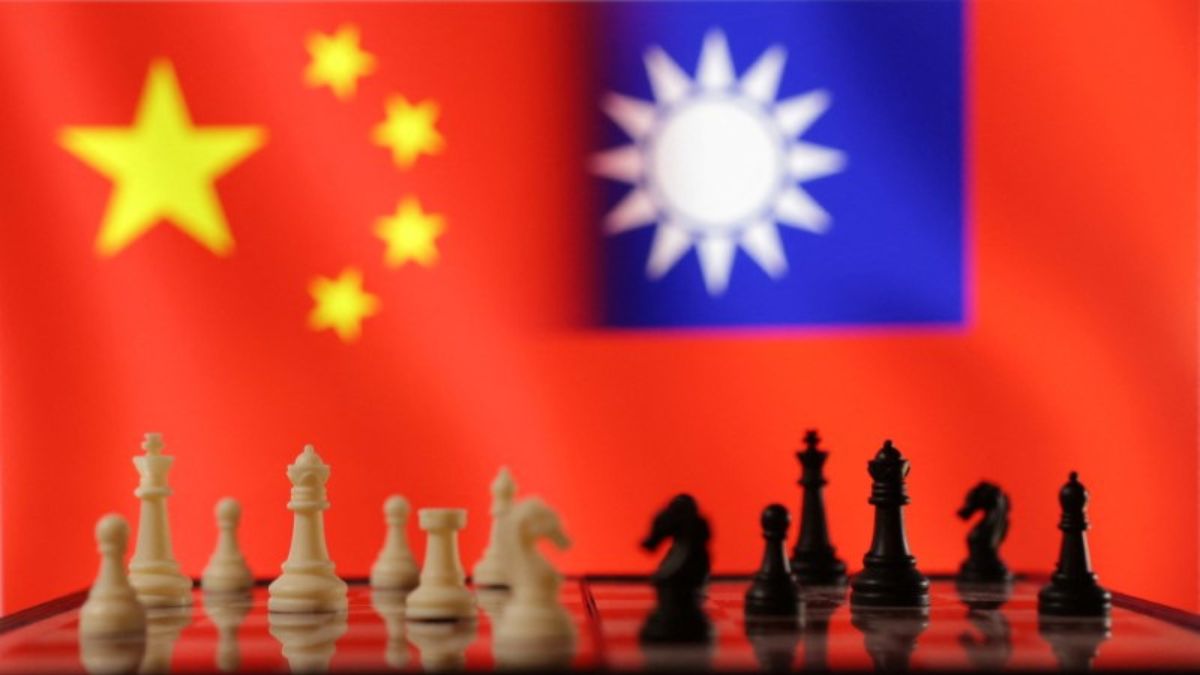China has initiated a series of influence campaigns against Taiwan ahead of the island’s inauguration of president-elect Lai Ching-te on 20 May. Beijing has increased the scale and frequency of military activities near Taiwan while partially relaxing travel and import restrictions.
China claims Taiwan as part of its territory and has said it will not rule out using force to bring the island under Beijing’s control.
Taiwanese defence ministry in a frenzy
Taiwanese defence and coast guard officials said on Thursday (9 May) that dozens of Chinese warplanes and ships had been detected around the island.
In addition to this, Taipei detected 26 Chinese military aircraft and five Chinese naval vessels near the island between 2 May and 3 May, including 17 Chinese military aircraft crossing the median line of the Taiwan Strait. Some Chinese aircraft got as close as about 76 kilometres from Taiwan’s northern port city of Keelung, which hosts an important naval base.
Also Read: With Taiwanese President Lai Ching-te set to assume office, China’s woes will only exacerbate
The director general of Taiwan’s National Security Bureau, Tsai Ming-yen, told Taiwanese lawmakers on 1 May that the Chinese military had incorporated new tactics into its joint combat readiness patrol near the island, including staging night-time combat patrols and using landing ships and minesweepers during these exercises.
Diplomatic maneuvers used by Beijing
Beijing also announced plans to allow residents from its southern province of Fujian to travel to Taiwan’s outlying island of Matsu while lifting import restrictions on Taiwanese pomelos and two types of seafood late last month.
Impact Shorts
More ShortsThe news came after a group of lawmakers from Taiwan’s main opposition party, the Kuomintang, which advocates closer ties between Taipei and Beijing, visited China.
“Some experts say the measures rolled out by Beijing in recent weeks are all part of its influence operation against Taipei, which involves using disinformation campaigns, economic coercion, and gray zone operations to impose pressure on Taiwan,” Su Tzu-yun, a military expert at the Taipei-based Institute for National Defence and Security Research told VOA.
Also Read: Taiwan to create its own Starlink-like satellite system to counter China offensive
The Coast Guard in Taipei said late on Thursday it had detected 12 Chinese ships around its outlying island of Kinmen.
Kinmen, administered by Taipei but located five kilometres (three miles) from the Chinese city of Xiamen, has seen heightened tensions in recent months, with Chinese coast guard ships maintaining a presence around it.
“China’s overall strategy is still to increase pressure on Taiwan but they are also offering some small favours to Taiwan’s opposition parties,” said Su Tzu-yun.
US warship ‘passes through’ Taiwan Strait
In a move likely to further escalate tensions, a United States (US) warship sailed through the Taiwan Strait, a narrow 180 kilometre (110 mile) body of water separating the island from China on Wednesday (8 May). China denounced the transit, considering it a violation of its jurisdiction over the strait.
Beijing says it has authority over the strait. Taiwan and the US dispute that, saying the Taiwan Strait is an international waterway.
Navy Senior Captain Li Xi, spokesperson for China’s Eastern Theater Command, accused the US of having “publicly hyped” the passage of the USS Halsey on Wednesday. In a statement, Li said the command, which oversees operations around the strait, organised naval and air forces “to monitor the passage of the US ship through the entire process”.
The US Navy’s 7th Fleet said the Halsey “conducted a routine Taiwan Strait transit on 8 May through waters where high-seas freedoms of navigation and overflight apply in accordance with international law."
Lai to ensure policy continuity
In response to the escalating tensions, president-elect Lai has appointed key cabinet members to oversee national security and foreign policy, signaling continuity with the outgoing administration’s approach.
“Since some of his cabinet members are holdovers from the current administration, they have already established relationships with officials in other countries, and some of the existing co-operations can continue,” Chen Fang-yu, a political scientist at Soochow University in Taiwan told VOA.
Lai’s Democratic Progressive Party favours Taiwan’s de facto independent status under which it maintains strong unofficial relations with the US and other major nations.
Also Read: Who is Chiang Kai-shek, whose statues Taiwan is tearing down?
China had warned before Taiwan’s elections that Lai would bring “war and decline” to the island, making the lead-up to his 20 May inauguration a closely watched period, reported AFP. Since the Chinese military usually concentrates military exercises between June and November, Taipei will be closely monitoring any increase in Chinese military activities around the island nation.
Taiwan’s government rejects Beijing’s sovereignty claims, saying only the island’s people can decide their future.
With inputs from agencies
)